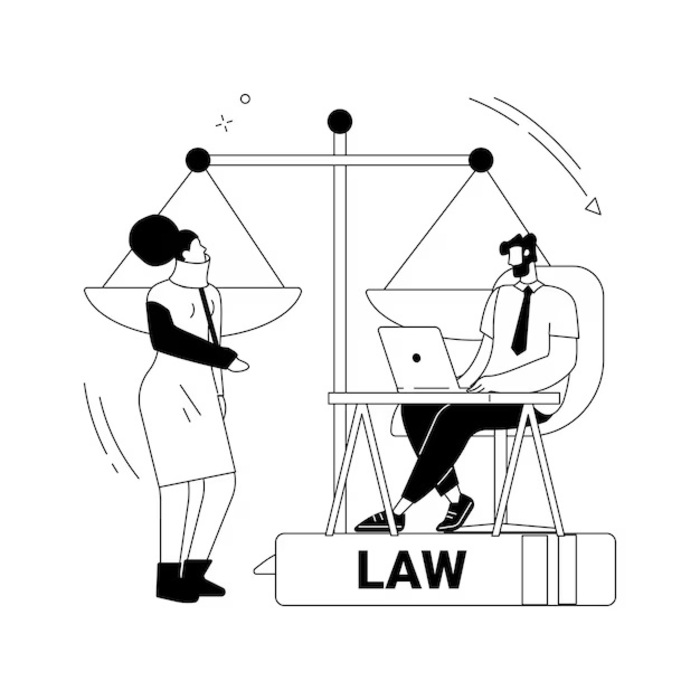In today’s intricate landscape of commerce and regulations, many organizations benefit from engaging experts outside their internal teams. This practice enhances firms’ capabilities, allowing them to navigate challenges with greater insight and proficiency. By tapping into specialized knowledge, businesses can ensure they stay informed about complex legal frameworks that govern their operations.
Utilizing knowledgeable practitioners from beyond an organization’s walls opens doors to a plethora of advantages. These experts often bring a wealth of experience, having dealt with a myriad of situations across various sectors. Their involvement can lead to improved strategies, better compliance, and minimized risks, ultimately fostering a more robust framework for decision-making.
Collaborating with such professionals not only provides access to necessary skills but also helps in cultivating a sense of security. Organizations can focus on their core objectives while relying on proficient allies to handle legal intricacies. This partnership facilitates a proactive approach toward potential issues, ensuring that firms remain agile in an ever-evolving environment.
The Importance of Legal Expertise
Access to proficient knowledge in regulations and statutes is vital for any entity. Navigating complex legal frameworks without adequate support can lead to significant pitfalls. Engaging with seasoned professionals ensures that decisions are informed and aligned with current laws.
Benefits of Proficient Knowledge
- Minimizing Risks: Expert advice helps in identifying potential threats, enabling proactive measures.
- Strategic Guidance: Skilled attorneys provide insights that can shape effective strategies for growth and compliance.
- Dispute Resolution: Experienced professionals are adept at negotiating settlements, often preventing lengthy litigation.
Areas Relying on Expertise
- Corporate Governance: Ensuring compliance with regulations to maintain organizational integrity.
- Intellectual Property: Protecting innovations and creative works from infringement.
- Employment Law: Navigating employee relations and regulatory requirements to foster a positive workplace.
Navigating Complex Legal Landscapes
In an increasingly intricate environment of regulations and compliance demands, managing multifaceted legal matters becomes essential for organizations. Engaging with proficient specialists can empower businesses to maneuver through these challenges effectively, ensuring adherence and minimizing risks.
Why Expertise Matters
Engagement with knowledgeable professionals provides crucial insights into evolving legal frameworks. This expertise aids in making informed decisions, tailoring strategies that align with specific industry requirements. As laws shift and adapt, organizations benefit from having dedicated advisors who can interpret nuances and advise on best practices.
Approaches for Effective Management
Implementing a strategic framework for handling legal issues promotes efficiency and reduces uncertainty. Here are a few vital strategies:
| Strategy | Description |
|---|---|
| Proactive Assessment | Regularly reviewing existing policies and practices to identify potential vulnerabilities. |
| Continuous Training | Providing staff with ongoing education on relevant legal updates and compliance requirements. |
| Collaborative Partnerships | Building relationships with external advisors to enhance in-house capabilities and insights. |
By implementing these approaches, organizations are better equipped to confront challenges posed by complex regulations, ultimately fostering a more secure operational environment.
Cost-Effectiveness of Outsourcing Legal Work
Engaging external specialists for legal tasks can lead to significant financial advantages for various organizations. By leveraging the expertise of knowledgeable professionals, companies often find themselves saving both time and resources, allowing them to focus on core activities. This strategic approach fosters more efficient operations while minimizing expenditures related to in-house personnel and associated overhead costs.
Employing external experts eliminates the need for a full-time, dedicated team, reducing costs tied to salaries, benefits, and training. In addition, businesses can access a wider range of expertise without the burden of maintaining a large legal department. This flexibility enables firms to scale services based on specific needs and projects, further enhancing economic efficiency.
Moreover, outsourcing often results in more predictable budgeting and allocation of resources. By contracting services on an as-needed basis, organizations can better manage cash flow and avoid unexpected expenses related to legal matters. In many cases, external firms offer competitive rates, allowing companies to receive high-quality support without stretching their financial capabilities.
In summary, outsourcing legal functions not only streamlines processes but also provides substantial cost savings, making it a compelling choice for those seeking to optimize their financial performance while ensuring compliance and risk management.
Enhancing Business Strategy with Legal Counsel
Integrating specialized guidance into organizational planning can significantly elevate competitive positioning. Engaging experts in regulations and compliance allows businesses to navigate complex landscapes, ensuring decision-making aligns with current laws while minimizing risk exposure. This collaboration fosters a proactive approach rather than a reactive one, enabling firms to capitalize on opportunities before they become challenges.
Strategic partnerships with legal professionals can also drive innovation. By addressing potential legal hurdles early in the development process, companies can explore new markets or products with greater confidence. This not only accelerates growth but also enhances sustainability by embedding compliance into the core of business operations.
Furthermore, leveraging such expertise encourages effective resource allocation. As organizations identify and mitigate legal pitfalls, they can allocate more resources to strategic initiatives. This creates a more agile framework, allowing firms to pivot swiftly as market conditions evolve.
In conclusion, integrating expert insights into business strategy is crucial for cultivating resilience and adaptability, ultimately paving the way for long-term success and stability.
Building Strong Client-Lawyer Relationships
Establishing a robust connection between clients and their attorneys is essential for successful collaboration. Such relationships foster trust, enhance communication, and facilitate effective problem-solving. When both parties engage openly, they can navigate complex legal matters with greater ease, leading to more favorable outcomes.
Effective communication serves as a cornerstone of this partnership. Clients should feel comfortable sharing their concerns and expectations, while lawyers must actively listen and provide clear guidance. This mutual understanding helps in aligning strategies to meet the client’s objectives.
Transparency also plays a significant role in nurturing trust. Attorneys should keep clients informed about progress, potential challenges, and available options. This openness ensures that clients remain engaged and reassured throughout the legal process.
Additionally, personalized service can greatly enhance the client experience. Taking the time to understand individual preferences, values, and goals allows lawyers to tailor their approach effectively. Such attention to detail strengthens loyalty and reinforces the bond between both parties.
Finally, ongoing support beyond immediate legal issues solidifies a lasting relationship. Attorneys who check in, provide updates, and offer resources for future needs create a sense of partnership that transcends individual cases.
Mitigating Risks through Professional Guidance
Engaging expert advisors is crucial for navigating complex landscapes. Specialized knowledge can significantly reduce potential pitfalls, ensuring that operations adhere to industry standards while avoiding unnecessary complications.
Through proactive strategies, organizations can identify vulnerabilities in processes and determine appropriate measures to counterbalance them. Skilled professionals not only provide insights but also equip teams with tools to handle unforeseen challenges effectively.
| Risk Area | Professional Insight | Recommended Action |
|---|---|---|
| Regulatory Compliance | Stay informed about changes in laws | Conduct regular audits |
| Contract Management | Assess obligations and rights | Implement contract review processes |
| Litigation Preparedness | Understand potential legal exposures | Develop a risk management plan |
With careful planning influenced by specialist advice, entities can navigate uncertainties with greater confidence. This not only fosters a culture of compliance but also enhances strategic decision-making capabilities.
Q&A: Outside legal counsel
What are the primary benefits of hiring outside legal counsel for a business?
Hiring outside legal counsel provides several significant benefits for a business. Firstly, it offers access to specialized expertise that may not be available in-house, such as knowledge in complex regulatory matters, intellectual property, or litigation strategies. Additionally, outside counsel can provide an objective viewpoint on legal issues, helping businesses make informed decisions without the influence of internal biases. This external legal support often allows firms to save costs in the long run by avoiding potential legal disputes or penalties through proactive legal advice. Furthermore, engaging outside counsel can provide flexibility in managing workload, allowing businesses to scale their legal resources according to their needs without committing to full-time hires.
How does outside legal counsel typically interact with a company’s internal legal team?
Outside legal counsel typically collaborates with a company’s internal legal team by working in tandem on specific legal matters or projects. This interaction generally begins with an initial consultation where both parties identify the scope of work and the extent of collaboration needed. During the engagement, outside counsel serves as an extension of the internal team, providing specialized knowledge and insights. They might attend internal meetings, participate in strategy discussions, and work jointly on documentation or litigation preparations. Effective communication between outside counsel and the internal legal team is crucial to ensure that all legal strategies are aligned with the company’s overall objectives and that there is a seamless flow of information.
What types of legal issues are most commonly handled by outside legal counsel?
Outside legal counsel is often engaged to handle a diverse array of legal issues. Common practices include corporate governance, mergers and acquisitions, intellectual property rights, employment and labor law, compliance with regulatory requirements, and litigation support. Businesses may also seek outside counsel for contract negotiations or dispute resolutions. In particular, companies operating in highly regulated industries, such as healthcare or finance, frequently rely on outside legal experts to navigate complex legal frameworks effectively. Additionally, outside counsels are increasingly involved in data privacy and cybersecurity issues, offering advice to help organizations safeguard sensitive information and comply with relevant laws.
How can a business choose the right outside legal counsel for its needs?
Choosing the right outside legal counsel requires a systematic approach to ensure that the selected firm aligns with the business’s specific legal needs. First, companies should assess the area of expertise necessary for their requirements, such as corporate law, intellectual property, or regulatory compliance. It’s beneficial to consider the counsel’s experience and reputation in that specific field. Businesses should also evaluate the firm’s size and structure; larger firms may offer a broad range of services but may also incur higher costs, while smaller firms might provide personalized attention but with limited resources. Establishing a good rapport is vital, as effective communication can significantly affect the attorney-client relationship. Requesting referrals, reading client testimonials, and conducting interviews can help businesses make an informed decision when selecting outside legal counsel.
What are the potential drawbacks of relying too heavily on outside legal counsel?
While outside legal counsel can provide invaluable support and expertise, there are potential drawbacks to relying too heavily on them. One significant concern is the risk of losing in-house legal knowledge and capability. As organizations depend more on external attorneys, internal teams may become less engaged and knowledgeable about legal issues, which can lead to over-reliance and decreased responsiveness. Additionally, outside counsel may not fully understand the company’s culture and operational context, which can result in legal strategies that are misaligned with business objectives. Cost is another critical consideration; ongoing reliance on outside firms can lead to high legal expenses, particularly if the firm is not thoroughly vetted for efficiency and effectiveness. Finally, managing communication and expectations can become challenging if the business frequently engages multiple outside law firms, potentially leading to inconsistencies in legal strategy and execution.
What are the primary benefits of hiring outside legal counsel for a business?
Hiring outside legal counsel provides several key benefits for a business. Firstly, it offers access to specialized expertise that may not be available in-house. This is particularly valuable for complex legal issues or industries that require detailed knowledge of specific regulations. Secondly, outside counsel can provide an objective perspective, which is crucial during legal disputes or negotiations. This independence can help businesses make informed decisions without being influenced by internal biases. Additionally, outsourcing legal work can be more cost-effective than maintaining a full-time legal team, especially for smaller companies or those with fluctuating legal needs. Lastly, outside legal counsel can help businesses navigate compliance issues effectively, reducing the risk of legal complications and potential penalties.
How can a business determine when it’s time to engage outside legal counsel?
Determining the right time to engage outside legal counsel can depend on several factors. A business should consider seeking external legal assistance when facing complex legal matters that require specialized knowledge, such as mergers and acquisitions, intellectual property disputes, or employment law issues. Additionally, if a company finds itself spending a significant amount of time and resources managing legal issues internally, it may be more efficient to consult with outside counsel. Other signs include encountering legal disputes that could escalate, needing to navigate regulatory compliance, or experiencing business changes like rapid growth or expansion into new markets that introduce unfamiliar legal challenges. Ultimately, if a business feels overwhelmed or unsure about the legal implications of its actions, it is prudent to consult with outside legal counsel to ensure proper guidance and risk management.
How can an outside general counsel provide legal services that meet the particular needs of small business owners?
An outside general counsel (OGC) can provide legal services tailored to the specific needs of small business owners by offering expert legal guidance on critical business matters. Whether navigating legal complexities or offering unbiased advice on transactional issues, OGCs ensure that small businesses receive legally sound solutions that protect their interests. These services are cost-effective, addressing key concerns like business law, compliance matters, and legal risks without the full-time cost of in-house legal counsel.
What role does outside legal counsel LLP play in corporate legal matters for business owners?
Outside legal counsel LLP provides comprehensive legal services to business owners, offering expert legal guidance in areas like corporate legal, transactional, and civil litigation. Whether assisting with property and water rights or government accountability on a case-by-case basis, an LLP offers tailored solutions to navigate the unique legal complexities business owners face. This counsel helps businesses mitigate risks, comply with laws and regulations, and ensure long-term success.
How does outside legal counsel PLC provide legal representation for medium-sized businesses, especially in civil litigation areas like property and water rights?
Outside legal counsel PLC offers experienced legal representation for medium-sized businesses, particularly in civil litigation in the areas of property and water rights. By serving on a case-by-case basis and addressing specific legal needs, the outside counsel team provides tailored legal solutions that meet the unique requirements of each client. The counsel comes with expert knowledge in areas like antitrust, patent, and trademark law, and can help businesses navigate complex legal challenges. Offering an unbiased approach, the team assists businesses in Michigan State, including Saginaw, ensuring cost-effective solutions while collaborating with in-house lawyers and business administration teams to provide high-value legal services.
What factors should businesses consider when selecting the right outside legal service providers in Michigan, particularly in Hemlock, to ensure they meet their unique legal needs in 2023?
When selecting the right outside legal service providers in Michigan, particularly in Hemlock, businesses should consider several key factors to ensure their legal needs are effectively met in 2023. First, it is essential to identify providers who operate on a case-by-case basis and serving the specific needs of each client. This tailored approach allows legal counsel to address unique challenges while ensuring compliance with U.S. laws. Businesses should also look for firms that can draft necessary legal documents, providing expert guidance that aligns with their operational goals. The chosen outside counsel team should be capable of working cost-effectively while supporting the executive team in navigating legal complexities, including matters that may arise at the Michigan Supreme Court or the United States Supreme Court. Ultimately, a strong partnership with capable legal service providers will create a work environment that fosters compliance and minimizes legal risks.
What are the benefits of having outside legal counsel that operates on a case-by-case basis and serving the unique needs of a business?
Having outside legal counsel that operates on a case-by-case basis and serving the unique needs of a business offers several benefits. This approach allows legal services to be tailored to meet the unique challenges and objectives of the organization, ensuring that all legal strategies are specifically aligned with its operational goals. Businesses can expect personalized attention and expert guidance that addresses their particular circumstances, leading to more effective legal solutions. Additionally, by selecting counsel who can adapt to the evolving needs of the organization, businesses can enhance their overall legal strategy, ensuring they remain compliant with applicable laws and regulations. This flexibility not only fosters a stronger partnership but also provides businesses with the confidence to navigate complex legal issues effectively. For more information on how to choose the right outside legal counsel, click to see additional resources and insights.








